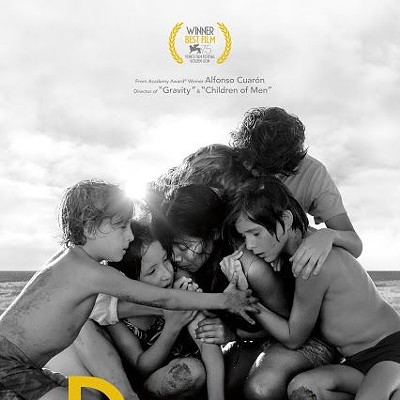Screenshots
[
{
"name": "Air - MedRect Combo - Inline Content 1",
"component": "14680855",
"insertPoint": "7",
"requiredCountToDisplay": "5",
"parentWrapperClass": "fdn-ads-inline-content-block"
},{
"name": "Air - MedRect Combo - Inline Content 2",
"component": "14680856",
"insertPoint": "15",
"requiredCountToDisplay": "9",
"parentWrapperClass": "fdn-ads-inline-content-block"
},{
"name": "Air - SVP - Leaderboard - Inline Content - 2",
"component": "16852291",
"insertPoint": "10",
"requiredCountToDisplay": "10",
"parentWrapperClass": "fdn-ads-inline-content-block"
},{
"name": "Air - SVP - Leaderboard - Inline Content - 3",
"component": "16852292",
"insertPoint": "20",
"requiredCountToDisplay": "18",
"parentWrapperClass": "fdn-ads-inline-content-block"
},{
"name": "Air - SVP - Leaderboard - Inline Content - 1",
"component": "16852290",
"insertPoint": "25",
"requiredCountToDisplay": "22",
"parentWrapperClass": "fdn-ads-inline-content-block"
}
]
28 Weeks Later ***
What is it about the zombie flick that brings out the social critic in filmmakers? George Romero’s Night of the Living Dead subtly touched upon racism, while his Dawn of the Dead was a glorious exploration of mindless consumerism. Decades later, Danny Boyle used 28 Days Later to examine the unchecked spread of SARS, Anthrax and, given the time and the film’s English setting, even mad cow disease. Now, here’s Spanish director Juan Carlos Fresnadillo (Intacto) tackling the sequel (Boyle remains as an executive producer). Working from Rowan Joffe’s script, he’s made a zombie yarn that also serves as a condemnation of American military might in Iraq. Yet let’s put aside the sociopolitical context for a minute: Taken strictly as a full-throttle horror film, 28 Weeks Later delivers the goods. Set (as the title implies) months after the original film, this finds the virus still affecting folks throughout the British Isles. But efforts at containment eventually succeed (i.e. “Mission accomplished”), and slowly the survivors start over in a self-contained city, all under the eye of the U.S. military. Naturally, a security breach occurs, the zombies start overrunning the city, and the American troops begin indiscriminately killing everyone in sight, whether they’re zombies (read: insurgents) or humans (read: innocent Iraqi civilians). Moviegoers can take or leave the message beneath the mayhem, but what’s on the surface for everyone to enjoy is an expertly crafted terror tale that’s heavy on the jolts and morally complicated when it comes to several of its characters - for instance, a family man portrayed by Robert Carlyle is quickly revealed to be a less-than-exemplary role model for his kids (promising performers burdened with the unfortunate names Imogen Poots and Mackintosh Muggleton). And given the film’s final shot, 28 Months Later isn’t out of the question - let’s just hope it doesn’t bring down what’s been a bloody good show so far.
Georgia Rule*1/2
The legendary Katharine Hepburn was occasionally too brittle for my taste, but watching Georgia Rule, it’s hard to picture anyone else in the role of Georgia, a family matriarch who runs her household the way a drill instructor lords over greenhorn recruits. It would have been a tailor-made role for Hepburn 30 years ago, since she would have brought to the part the necessary balance of outward rigidity and inward serenity. Instead, it’s Jane Fonda who awkwardly fills the role, and, on the heels of her disastrous return to the screen in Monster-In-Law, it’s clear that the career resuscitation isn’t going exactly as planned. Fonda’s Georgia is a one-note shrew, and one of this schizophrenic movie’s greatest failings is that it never acknowledges that it’s this woman’s puritanical behavior which started the chain reaction partly leading to the miserable circumstances that plague her daughter Lilly (Felicity Huffman) and her granddaughter Rachel (Lindsey Lohan). Then again, it’s not just Fonda’s fault that Georgia is a poorly realized character; some of the blame has to be directed at scripter Mark Andrus and director Garry Marshall. Marshall in particular has no clue how to orchestrate the movie’s heavy themes involving alcoholism (Lilly), nymphomania (Rachel) and possible child abuse (Rachel claims she was repeatedly screwed by her stepdad when she was 12); after all, he’s the director who viewed mental retardation as little more than an amusing character quirk in The Other Sister. Here, he tries to lighten the movie’s mood by having Rachel give a blowjob to a nice Mormon boy who’s seriously trying to serve God (har har) and then painting the lad’s girlfriend and her pals as the story’s heavies. Worthy mother-daughter sagas stretch all the way back to Stella Dallas in the 1930s and reached their zenith with 1983’s magnificent Terms of Endearment. Georgia Rule harbored the seeds of a comparable tearjerker, but because it’s been placed in the wrong hands, it fails to elicit much in the way of genuine emotion. If there’s not a dry eye in the house when Lilly and Rachel finally hug, it’s only because audiences will have cleared out by that point.
The Ex**1/2
I have no idea how he takes his coffee, but when it comes to comedy, Danny DeVito takes it black - as evidenced by the string of dark satires he’s helmed over the course of two decades. In his hands, one can only speculate how far The Ex would have taken its dark comic undercurrents, but in the mitts of director Jesse Peretz and novice screenwriters David Guion and Michael Handelman, it doesn’t take them quite far enough. Still, The Ex offers enough in the way of laughs to earn it some measure of approval. Zach Braff plays Tom Reilly, who, along with his wife Sofia (Amanda Peet) and their newborn son, leaves NYC for Smalltown, Ohio, to work for his father-in-law (welcome back, Charles Grodin, after a 13-year retirement). The trouble starts immediately when Tom is paired at the office with Chip Sanders (Jason Bateman), a paraplegic who once had sex with Sofia during their school days and still carries the torch for her. Hoping to win her back - and taking an instant dislike to her husband - Chip sabotages Tom at every turn, embarrassing him in front of coworkers and alienating him from his family. It’s a losing battle for Tom, not only given Chip’s friendliness to everyone else but also because his wheelchair confinement only serves to make Tom’s open hostility seem even more boorish. The material is too often played for broad laughs that fail to achieve their purpose, but there’s some nasty pleasure to be had in watching the escalating feud between Tom and Chip. It’s just a shame the movie cops out by pulling its punch toward the end. By displaying a little more nerve, the filmmakers could have had a vicious pitbull of a comedy, on the order of Kingpin or DeVito’s The War of the Roses. But by neutering themselves, they’ve delivered a comedy whose bark is ultimately worse than its bite.
Lucky You **1/2
Director Curtis Hanson has spent the last decade delivering nothing but winning hands, so it’s not without a measure of irony that his luck has run out with Lucky You. After the incredible run of the critical darlings L.A. Confidential and Wonder Boys, the box office hit 8 Mile and the underrated In Her Shoes, Hanson (co-scripting with Eric Roth) finds himself at the helm of a film so disowned by its parent studio (Warner Bros.) that not only has its release date already been changed at least twice, but it ended up serving as the sacrificial lamb chosen to open against Spider-Man 3. In truth, it deserves a less gruesome fate, even if it never reaches its full potential. Eric Bana, nicely underplaying, stars as Huck Cheever, a Las Vegas poker ace who’s allergic to responsibility and constantly at odds with his father L.C. (Robert Duvall), a poker champ who abandoned him and his mother decades earlier and now haunts the same casinos as his son. But Huck finds his heart softening -- and his infrequently employed principles hardening -- once he meets struggling nightclub singer Billie Offer (Drew Barrymore), whose sincerity and naivety win him over. The romance between Huck and Billie isn’t credible, partly because Billie isn’t sufficiently fleshed out but mainly because Barrymore delivers an atypically flat performance that leaves her costar stranded. Far better are the scenes between Huck and L.C., and Hanson and Roth make sure to surround this pair with a wide array of interesting characters, including Little Children’s Phyllis Somerville as a pawnbroker and Jean Smart as a fellow card enthusiast (even an unbilled Robert Downey, Jr. and Borat’s manager make appearances!). But did it all have to end with, yes, a championship poker tournament?
Spider-Man 3***
The appeal of Spider-Man has always reached far beyond the comic book crowd: Over the decades, he’s become an icon of enormous proportions, a larger-than-life figure who, in the superhero genre, is matched perhaps only by Superman and Batman. With this in mind, director Sam Raimi and his various scripters have fashioned three Spider-Man flicks that have all managed to remain true to the spirit -- if not always the letter -- of the comic series. What’s even more notable is that the three pictures have been remarkably even-keeled in quality and ambition: None have reached the giddy heights of, say, 1978’s Superman or 2005’s Batman Begins, but they have all achieved what they set out to do: provide solid entertainment for the summer movie crowd. With a script by Raimi, his brother Ivan, and Oscar winner Alvin Sargent (Ordinary People), this third installment is packed to the rafters with activity and excitement. On the domestic front, Peter Parker (Tobey Maguire) and Mary Jane Watson (Kirsten Dunst) find themselves struggling with relationship woes, while on the battlefields of NYC, Spider-Man must face off against the Sandman (Thomas Haden Church), Venom (Topher Grace), a resurgent Green Goblin (James Franco), and his own dark impulses. With so many spandex hijinks going on, it’s a wonder that the movie isn’t wall to wall with pounding action. But with a generous running time of 140 minutes, Raimi is able to occasionally slow down the pace and allow more introspective moments to take center stage.
Hot Fuzz ***
The team that brought us Shaun of the Dead -- writer-director Edgar Wright, writer-star Simon Pegg and costar Nick Frost -- now take a shot or 12 at the police procedural with Hot Fuzz, a funny if distressingly overlong comedy that also manages to evoke memories of The Wicker Man, Plague of the Zombies and other spooky yarns centering on eccentric villagers inhabiting the less-traveled paths of the British Isles. Pegg plays Nicholas Angel, a dynamic, by-the-book cop who’s so efficient at nailing the bad guys that his three superiors (cameos by familiar English actors) ship him off to the remote hamlet of Sandford so he won’t keep embarrassing the rest of the London force. Upon arriving in Sandford, he realizes that his commanding officer (Jim Broadbent) is a flake and his peers are morons, although he does strike up a friendship with Danny Butterman (Frost), a well-meaning cop who finds spiritual guidance in the movies Bad Boys II and Point Break. But a string of accidents convinces Angel that some dark secret exists in Sandford, and he enlists the bumbling Butterman to help him get to the bottom of the mystery.
Next *1/2
One of the weakest adaptations yet of a Philip K. Dick story (“The Golden Man”), Next is most notable for how it shunts the vibrant, 46-year-old Julianne Moore off to the sides while it gives 43-year-old Nicolas Cage a noticeably younger love interest in 25-year-old Jessica Biel, basically filling the same function as she did in last year’s The Illusionist, which is serving as girlfriend-pawn to a magician hoping to keep her out of harm’s way. Cage’s Cris Johnson actually uses his Vegas “magic man” act to cover up the fact that he can see two minutes into his own future and therefore shape his destiny to his liking. Cris considers his gift a curse, but FBI agent Callie Ferris (Moore) believes it can help her locate a Eurotrash terrorist outfit plotting to destroy Los Angeles with a nuclear bomb. Into the mix walks Liz Cooper (Biel), a teacher who’s been frequently appearing in Cris’ visions and who might hold the key to... well, something; the movie never bothers to elaborate.
Fracture***
For the most part, Hollywood has grown so inept at staging whodunits that it’s a blessing to come across a film like Fracture, which lets audiences know from the outset that he-done-it. The “he” in question is wealthy engineer Ted Crawford (Anthony Hopkins), who has just exacted his revenge on his cheating wife (Embeth Davidtz) by firing a bullet into her brain. With the identity of the villain in place, Fracture can then borrow a page from the Columbo playbook, by following the protagonist as he tries to piece together the details of the crime. But the lawman in this picture is a far cry from Peter Falk’s lovably rumbled detective. In a role that Richard Gere might have played in past years (indeed, Fracture director Gregory Hoblit previously oversaw Gere in a similar part in 1996’s Primal Fear), recent Oscar nominee Ryan Gosling (Half Nelson) portrays Willy Beachum, a hotshot attorney who’s used to winning and who agrees to prosecute Ted because, hey, the man has already signed a confession, right? But in his arrogance, Willy has underestimated Ted, and it’s a disastrous move that might end up costing him his burgeoning career.
The Reaping *1/2
Hilary Swank, whose second Oscar still wasn’t enough insurance to save her from shoddy efforts like this, stars as Katherine Winter, a university professor who, after losing her faith in God about the same time she lost her husband and daughter to tragedy, has gone 48-for-48 in exposing so-called “miracles” through scientific means. Her latest investigation takes her to the small town of Haven, La., where a blonde child (Bridge to Terabithia’s AnnaSophia Robb) is believed to be a satanic emissary sent to unleash the 10 plagues on this quiet hamlet. Stephen Hopkins, who directs every film as if it were a NASCAR vehicle gunning for the finish line, doesn’t have much faith in the screenplay by Carey W. Hayes and Chad Hayes, since he orchestrates much of the picture (most notably the flashbacks, dream sequences and CGI orgies) with all the delicacy of a lumberjack in ballerina slippers.
Meet The Robinsons *1/2
Imagine The Incredibles made by profiteers and that’s pretty much Meet the Robinsons in a nutshell -- it’s not surprising that, like Chicken Little (to name but one dud), this is Disney operating without the safety net of John Lasseter and his Pixar team. This obnoxious film focuses on obnoxious Lewis, an orphan whose contraptions are coveted by an obnoxious villain.
Perfect Stranger **
As far as Halle Berry thrillers go, this one beats Gothika and The Rich Man’s Wife hands down -- though it still isn’t up to the challenge set forth by Catwoman, which had us on the edge of our collective seats wondering if it would ever get better. Unlike the aforementioned trio, Perfect Stranger is at least fairly competent. Berry plays Rowena Price, an investigative reporter who seems to specialize in scandalous “gotcha” exposes. Her childhood friend Grace (Nicki Aycox) claims she’s been having an affair with advertising king Harrison Hill (Bruce Willis), so when Grace turns up dead, Rowena and her colleague Miles (Giovanni Ribisi) suspect that Hill, a notorious womanizer, was responsible. Grace creates two fake identities in an attempt to nail Hill -- she poses as a temp at his office and as an online party girl looking for action -- but as she continues to juggle separate personas, she begins to realize that other parties might also be involved.
Blades of Glory **
Will Ferrell’s Chazz Michael Michaels, a coarse sex addict who’s also an unlikely skating champion, mines the same comic territory as most Ferrell performances ranging from Talladega Nights to Anchorman and beyond. Since Ferrell is only playing variations on a theme, it’s costar Jon Heder (of Napoleon Dynamite fame) who provides most of the modest chuckles.
300 **1/2
Positioned as the Ultimate Fanboy Movie, this adaptation of the Frank Miller graphic novel is indeed ferocious enough to satisfy basement-dwellers with its gore, violence and chest-pounding machismo while savvy enough to downplay the homoeroticism that will ever-so-subtly cause heretofore unexplained stirrings in the loins of these same armchair warriors. č
























